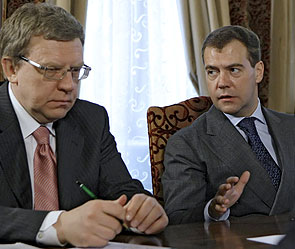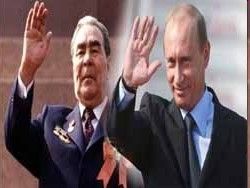
It appears that the Russian authorities have once again turned to their favorite pastime of successfully imitating reforms. After two years of fighting first in Ukraine and then in Syria, Vladimir Putin decided to address the crisis in the country. The elections are close at hand, while the economic situation in the country has been steadily deteriorating for the last two years, and the population is being increasingly affected by it. The quasi-patriotic rhetoric and the “Krym nash” (Crimea is ours) slogan cannot save the government’s poll standings from slumping anymore. Putin decided he needed a program and appointed his loyal colleague and former Finance Minister Kudrin his main “reformer”. However, in 16 years in power, Putin has never successfully implemented any major structural reform. Thus, this new seemingly liberal initiative will be nothing more than yet another step in the process of appropriation of state resources and unsystematic campaigning.
It is obvious that there can be no successful structural reforms in Russian under the Putin regime if only because reformers have no real authority regardless of the informal status granted to them by Putin. Created in 2012, the Economic Council under the Russian President has until now stayed dormant. Putin’s St Petersburg friend, Alexei Kudrin who was recently appointed deputy head of the Council is now supposed to breathe life into it. The Council plays a merely consultative role, and its objective consists in preparing projects to be later implemented by the Prime Minister Medvedev’s cabinet. However, a few years ago then-Finance Minister Alexei Kudrin was fired by none other than Medvedev. It is no secret that, however loyal to Putin, Kudrin and Medvedev strongly dislike each other. Thus, the head of the executive branch, Medvedev will hardly feel like following the guidelines set by his longtime opponent.
The main obstacle on the way to reform consists in political issues being taboo topics. The key task assigned to Kudrin is to come up with the country’s development strategy. It is obvious, however, that he cannot address such topics as the freedom of the press, the development of democratic institutions, parliamentarianism, multi-party system and political competition, the promotion of the independence of the justice system and of measures directed at curbing the expansive use of authority by Russian law enforcement agencies and preventing unlawful acts that these bodies commit with regard to individuals and businesses. Kidrin has been ordered to reform the economy without overstepping the bounds set by the regime. He, however, realizes that this simply cannot be done.
The Kremlin’s actual motives are of course entirely different. The regime’s current activity can be explained by one word: elections. Putin needs an attractive and well-publicized project, a campaign that could redefine his rule for the coming years and make people forget about the last decade of lost opportunities, overpowering inefficiency, regression and degradation. The promised reforms show the agony of an irremovable regime that has hit a dead end and is unable to change – not a strategy. Imitation replaces development; an unsystematic campaigning masks stagnation. This was the case in 2008 when, following the Kremlin’s order, the Higher School of Economics drafted a program that, as it turned out, was no longer needed right after the elections. Another example worth remembering dates back to 2011 when Vladimir Mau, one of the authors of the Strategy 2020, claimed, just like Kudrin does today, that he was not working on an election program.

Usually, authoritarian regimes allow reforms when they become the only way to prevent the state from collapsing. Putin, however, is a principled imperialist, and sees the fall of the Soviet Union as the greatest geopolitical catastrophe of the 20th century. Unlike Gorbachev, Putin will never initiate a perestroika since he believes that this is exactly what led to the collapse of the “great and powerful” Soviet Union. Consequently, Kudrin has little choice but to act the part and, as an old Soviet joke has it, stomp his feet along with other aging Politburo members thus imitating a moving train.





